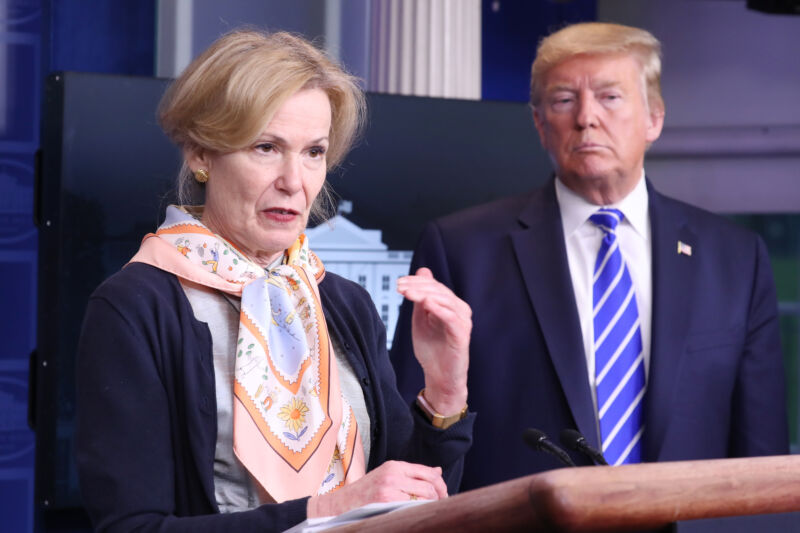
The US Centers for Disease Control and Prevention will regain control of national COVID-19 hospital data in December, after losing it early in the Pandemic.
As SARS-CoV-2 raged in the summer of 2020, the Trump administration was busy sabotaging the once-premier public health agency. The administration's meddling included stripping the CDC of its power to collect critical data on COVID-19 patients and pandemic resources in hospitals around the country.According to multiple investigative reports at the time, the White House Coronaviruses Task Force was frustrated by the CDC's process of collecting and tidying the data submitted by thousands of hospitals. There were statistics on admissions, patient demographic, bed availability, ventilator use, discharges, and PPE supplies.
Hospitals were told by the Trump administration in July 2020 to stop reporting data to the CDC and instead submit it to a new database run by a Pittsburgh-based software company. The little-known company won a $10.2 million contract with the federal government despite not having any experience setting up a data-collection system. The company had only won small contracts with the Department of Veteran Affairs for software that tracked the status of patients. The grant was twenty times larger than all of the company's previous grants.
The move quickly drew questions and concern from journalists and lawmakers. An investigation by NPR detailed irregularities in how TeleTracking won the contract. For instance, the Department of Health and Human Services initially said it was a no-bid contract—meaning that companies did not provide competing proposals to do the work—only to backpedal and say there was competition. The department clarified that the contract was won through a low-stakes competitive process called a "Broad Agency Announcement," which is a process usually used for innovative research, not setting up a database.Michael Zamagias, co-CEO of TeleTracking, told NPR that the company won the contract after the HHS called. Zamagias had previously worked in the real-estate business. He had personal ties to a New York-based real estate financing company that worked with the Trump Organization. Zamagias was close to Neal Cooper's father. Billions of dollars of business were done with Trump, according to Cooper.
AdvertisementAccording to an investigative report by Science, when the CDC was told that TeleTracking was taking over, staffers immediately knew that it would be a disaster. A CDC staffer left the announcement meeting to cry. others were angry "Birx has been on a monthslong rampage against our data," a CDC employee text to a colleague. It's good luck getting the hospitals to update their data.
The CDC staff was correct to be discouraged. Technical and administrative problems caused the transition to be chaotic. Hospitals said they didn't have enough time to prepare and faced frustrating technical problems when they were overwhelmed with patients. There was a public health crisis.
The vice president of media and public relations for the Missouri Hospital Association said that they went dark at the same time they were near their previous peak. The ability to have situational awareness has been hurt by moving from a platform that all of the individuals could easily manipulate.
Since then, TeleTracking's contract has been renewed many times, and the company has made over 50 million dollars. That is coming to a close. The contract will not be renewed at the end of the year. According to a leaked email, hospitals will once again submit their data to the CDC in the month of December.
Christopher Johnson, TeleTracking's president and coCEO said that the change was both a surprise and a disappointment. The company will make the transition easy.
Rochelle Walensky is the current director of the CDC. The final rule was issued by the federal government on August 1. The switch back appears to be a rare win for the CDC, which has been criticized for its handling of the Pandemic.